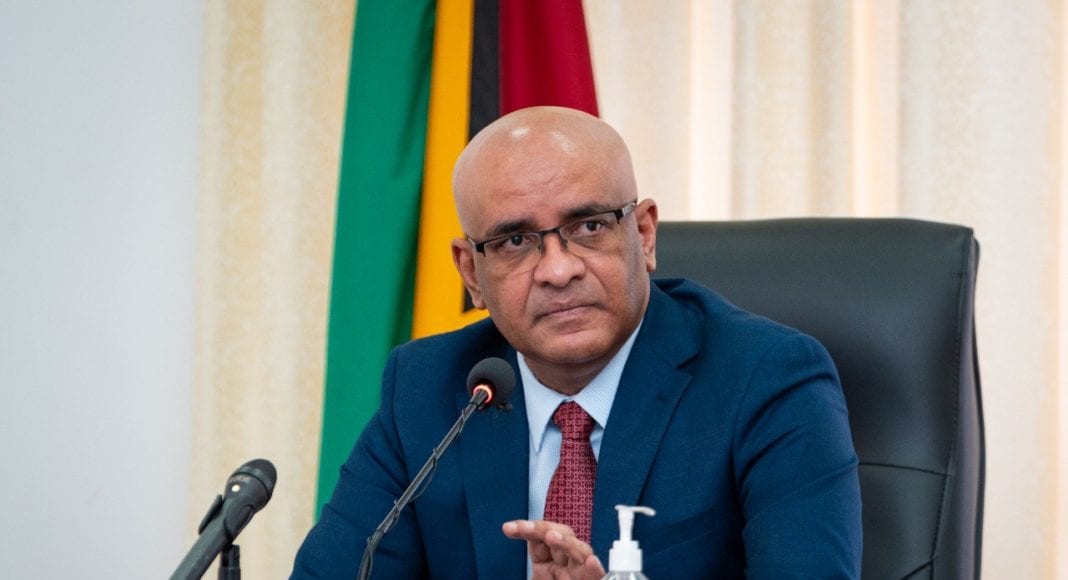When the Guyana government made provisions in the new Natural Resource Fund (NRF) Act 2021 which allowed for 100 percent of the $126B balance of the account to be transferred to the Consolidated Fund to support budget 2022, there were immediate concerns that the country is running the risk of overheating the economy. The phenomenon usually occurs when a nation’s productive capacity is stretched to such an unsustainable degree that it cannot meet the demands being made.
In fact, the Inter-American Development Bank (IDB) had warned Guyana since 2019 to be mindful of pumping too much of its oil earnings too quickly into the economy given its low absorptive capacity.
In light of these concerns and advice, Vice President, Dr. Bharrat Jagdeo was asked if his government agrees with such a perspective and how it intends to manage the budget in light of same. He said, “That is a fair question because it is a major concern about our capacity to implement a budget of this nature on the capital side and it could potentially drive prices up from overheating the economy. But key to all of this is management throughout it. And that is why first of all, we structured the budget the way we did. The capital programmes are where the bulk of the money has gone to.”
The Vice President added, “…We can easily scale back if we see inflationary pressures …The idea we are moving to now is that we are trying to get more contractors and expand local contracting capacity. We have just put in place a material unit that is looking at how many more sand pits we have to open, how many more quarries we have to get on stream, how much steel you need to import in the country so that you don’t drive prices up.”
At the end of the day, Dr. Jagdeo said he believes his government is more than capable of handling the implementation of a $552.9B budget backed by the country’s oil resources. He reiterated that careful management will be key to addressing this real concern. “We are careful, and we have our eyes on it,” the former Head of State concluded.
Co-Director of Energy Practice at the Americas Market Intelligence (AMI), Arthur Deakin, recently noted the move by the Guyanese authorities to have budget 2022 consume 100 percent of the oil fund’s balance, as of December 31, 2021. He too acknowledged that critics believe the government is focusing on short-term gains at the expense of sustainable savings and inter-generational wealth.
Deakin stressed however that a front-loaded spending structure for a Sovereign Wealth Fund is not unusual, especially for a historically underdeveloped country. He said the percentage of annual withdrawals from the fund will gradually decline as the economy matures, limited to 3 percent of total deposits made in the previous year. Therefore, Deakin said, “Better accountability mechanisms are fundamental to guarantee transparent spending, although observers should not overlook the total amount spent.”
For 2022, the government has said it will use the $126B from the fund to support a series of transformational projects for energy expansion and diversification. Some of the projects to be supported by Guyana’s oil earnings are as follows: The Amaila Falls Hydropower Project with an expected capacity of 165 MW; Gas-to-Energy Project which encompasses the establishment of a power plant to generate 300MW of power as well as a Natural Gas Liquids (NGL) plant that will cover domestic demand; the construction of a 1.5 MW hydropower plant at Kumu, and for rehabilitation and upgrade to 700kW capacity of the defunct Moco Moco hydropower plant in Region 9; and the completion of the 150kW hydropower scheme at Kato and for 30,000 photovoltaic home systems for hinterland and riverain areas.



